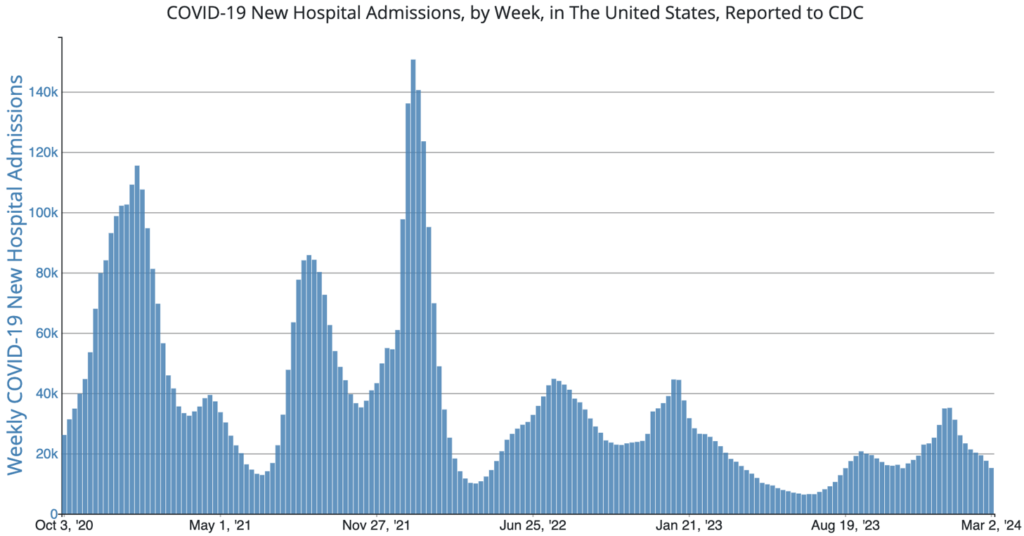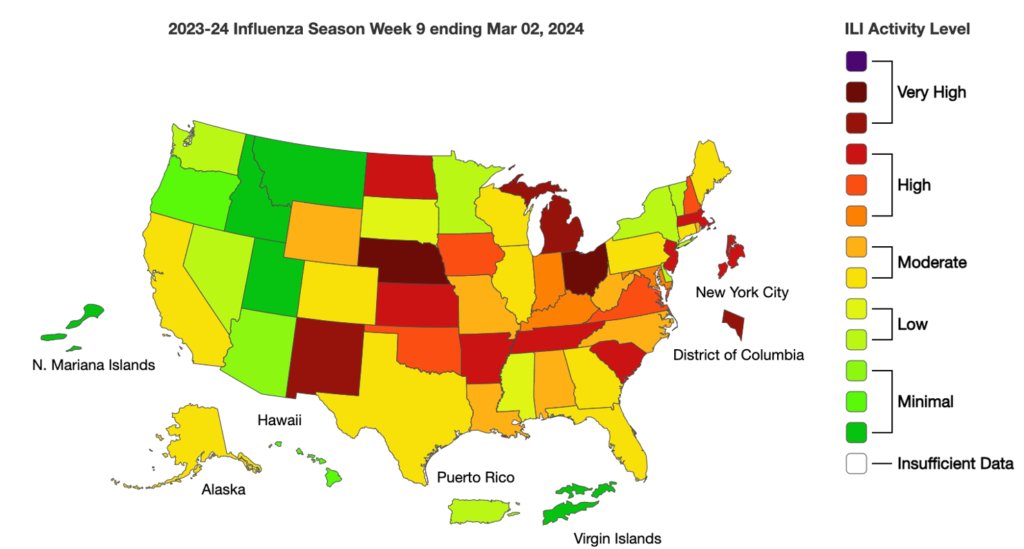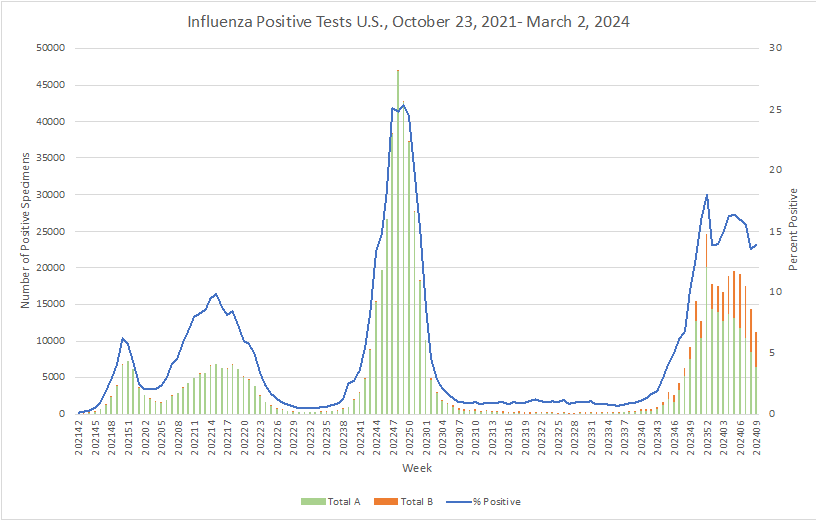Four years ago, on Monday, March 11, 2020, the World Health Organization (WHO) declared COVID-19 to be a pandemic. Since then, illnesses, hospitalizations and deaths which rose dramatically in the early years, have all been radically reduced due to non-pharmaceutical interventions and vaccines. Today, COVID is considered to be an endemic illness, that has been following similar seasonal periods as the flu. With all this, over the last couple of weeks, the CDC has made some significant updates to its COVID recommendations, reducing stay-home recommendations for some, while updating vaccination advice for others.
The stay-home, or isolation, advice brings recommendations more in line with those for flu and other respiratory viruses, recommending that those who are ill stay home and away from others until their symptoms are getting better overall, and they have not had a fever without using fever-reducing medication for at least 24 hours. The reduced timeframe does not apply, however, to health care workers or those in communal living settings (such as college dorms, shared employee housing, senior living, etc.).
Additionally, some people remain contagious beyond the stay-at-home period, so prevention strategies should continue for the next five days, including masking, washing hands, distancing from others, and getting tested for respiratory viruses.
Even with the reduced option, the five-day stay-home period can still be the safer approach, as COVID is not only highly infectious, it can also be very severe, as evidenced by the 60% greater rate of hospitalizations in February from COVID (17,000) vs. those from flu (10,000).
CDC’s updated vaccination advice is directed to adults who are 65 years of age and older, recommending that this group receive an additional updated 2023-2024 COVID vaccine dose, recognizing the increased risk of severe disease from COVID in older adults and the currently available data on vaccine effectiveness. Adults 65 years and older are disproportionately impacted by COVID-19, with more than half of COVID-19 hospitalizations during October 2023 to December 2023 occurring in this age group.
Previous CDC recommendations ensured that people who are immunocompromised are already eligible for additional doses of the COVID-19 vaccine. With data continuing to show the importance of vaccination to protect those most at risk for severe outcomes, the CDC had also previously advised that those who are immunocompromised receive an additional dose. For both, this can restore protection that may have waned since a previous vaccine dose.
COVID Risk Matrix:

Influenza:


- A German patient was vaccinated against COVID 217 times; the shots were bought and given privately within the space of 29 months. Researchers conducted tests on this individual and there was no evidence that he had fatigued certain cells and there wasn’t a sign that he had been infected with COVID before. Current research indicates that a three-dose vaccination coupled with regular top-up vaccines for vulnerable groups remains the favored approach.
- In anticipation of haj in June 2024, Saudi authorities are screening pilgrims arriving from West Africa for Ebola and have deployed mobile laboratories to test any suspected cases quickly. Nearly 3 million are expected in Mecca this year, including 1.4 million from abroad.
- There is a new combination test for flu and COVID-19 which has recently received Emergency Use Authorization in the US. This is from SEKISUI Diagnostics for its OSOM Flu SARS-CoV-2 Combo Test.
- Starting this fall, all the flu shots distributed in the United States will contain only three strains, instead of 4 strains as they have for years. On March 5, 2024, a panel of experts who advise the US Food and Drug Administration on vaccines voted to recommend three-strain flu vaccines that will exclude any viruses from B strains that are part of the branch of the flu’s family tree called Yamagata. These viruses were in decline before the pandemic, and all the precautions that helped people avoid COVID-19 – including masking, staying at home and better ventilation – likely lead to further decreases. These strains haven’t been detected in testing since March 2020.
- New Jersey officials are warning residents to stay alert after eight cases of mumps were reported in Hunterdon County.
- Artificial intelligence algorithm-based tuberculosis screening of X-rays is leading to a jump in notifications and helping identify up to 40% more incidental cases in India.
- Whooping cough cases are up in the UK, Serbia, and the Czech Republic. The increase may be attributed to lower vaccination rates.
- The Canadian COVID Society, a national non-profit, launched to address gaps left by public health agencies in COVID-19 prevention and awareness, with a focus on education and support for long COVID. Co-founded by five professionals including Dr. Joe Vipond and Dr. Kashif Pirzada, the society aims to engage the public and organizations with scientific knowledge and provide support for the 2.1 million Canadians affected by long COVID. Despite the shift of public health focus away from COVID-19, the society emphasizes the ongoing impact of the virus on health systems and the need for continued attention and resources.





